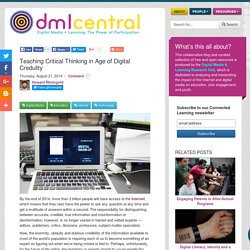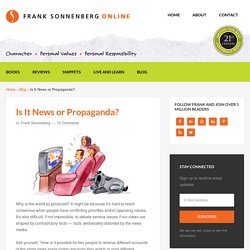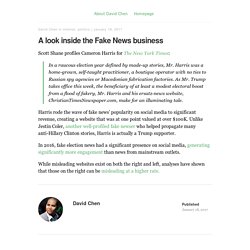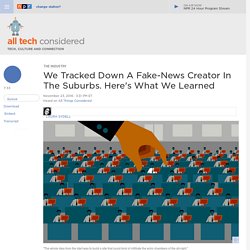

BuzzFeed. The Onion - America's Finest News Source. Teaching Critical Thinking in Age of Digital Credulity. By the end of 2014, more than 3 billion people will have access to the Internet, which means that they (we) have the power to ask any question at any time and get a multitude of answers within a second.

The responsibility for distinguishing between accurate, credible, true information and misinformation or disinformation, however, is no longer vested in trained and vetted experts — editors, publishers, critics, librarians, professors, subject-matter specialists. Now, the enormity, ubiquity and dubious credibility of the information available to most of the world’s population is requiring each of us to become something of an expert on figuring out when we’re being misled or lied to. Perhaps, unfortunately, for the future of life online, few teachers or parents impart to young people the always useful but now essential skills of how to question, investigate, analyze and judge that link they just got in email or the factual claim they just found through a search engine. Is It News or Propaganda? Why is the world so polarized?

It might be because it’s hard to reach consensus when people have conflicting priorities and/or opposing values. It’s also difficult, if not impossible, to debate serious issues if our views are shaped by contradictory facts –– facts deliberately distorted by the news media. Ask yourself, “How is it possible for two people to receive different accounts of the same news event simply because they watch or read different broadcasts/publications? I thought the truth is the truth.” Although the Internet isn’t considered the most trusted source of information, have the news media lowered their standards so much that the same can be said of them?
Good reporting presents the news in an objective, honest, comprehensive, and timely manner. Does the following scenario sound familiar? Every time the news media distort the news or present opinion as fact, they diminish their trustworthiness, damage their credibility, and tarnish the reputation of their organization.
A look inside the Fake News business - The Life and Times of David Chen. Scott Shane profiles Cameron Harris for The New York Times: In a raucous election year defined by made-up stories, Mr.

Harris was a home-grown, self-taught practitioner, a boutique operator with no ties to Russian spy agencies or Macedonian fabrication factories. As Mr. Trump takes office this week, the beneficiary of at least a modest electoral boost from a flood of fakery, Mr. Harris and his ersatz-news website, ChristianTimesNewspaper.com, make for an illuminating tale. Harris rode the wave of fake news’ popularity on social media to significant revenue, creating a website that was at one point valued at over $100K. In 2016, fake election news had a significant presence on social media, generating significantly more engagement than news from mainstream outlets. While misleading websites exist on both the right and left, analyses have shown that those on the right can be misleading at a higher rate. We Tracked Down A Fake-News Creator In The Suburbs. Here's What We Learned : All Tech Considered. "The whole idea from the start was to build a site that could kind of infiltrate the echo chambers of the alt-right.

" Fanatic Studio/Getty Images hide caption toggle caption Fanatic Studio/Getty Images "The whole idea from the start was to build a site that could kind of infiltrate the echo chambers of the alt-right. " A lot of fake and misleading news stories were shared across social media during the election. We wondered who was behind that story and why it was written. We tried to look up who owned it and hit a wall.
By day, John Jansen is head of engineering at Master-McNeil Inc., a tech company in Berkeley, Calif. Jansen started by looking at the site's history. Jansen is kind of like an archaeologist. The "Denver Guardian" was built and designed using a pretty common platform — WordPress. "That was sort of the thread that started to unravel everything," Jansen says. The sites include NationalReport.net, USAToday.com.co, WashingtonPost.com.co. Interview Highlights Yes.